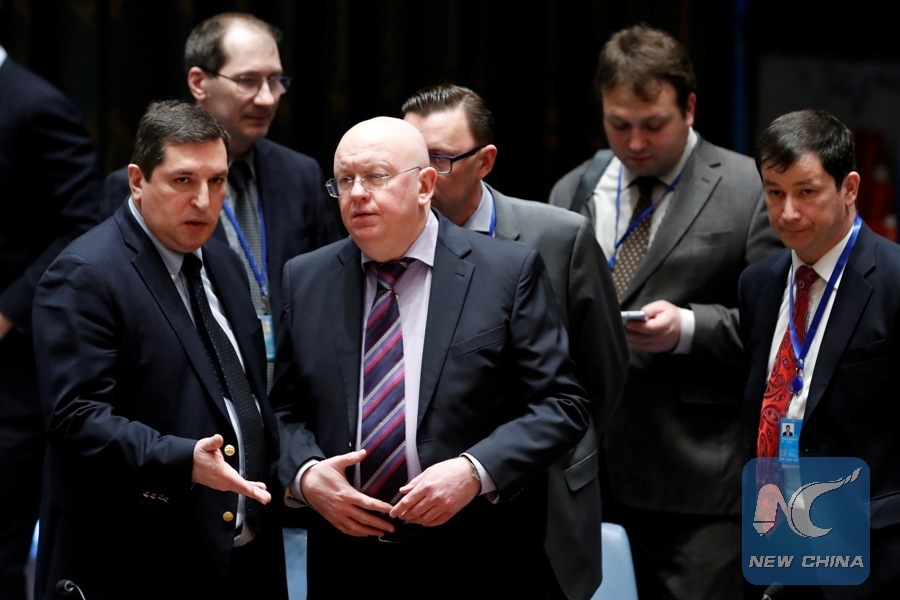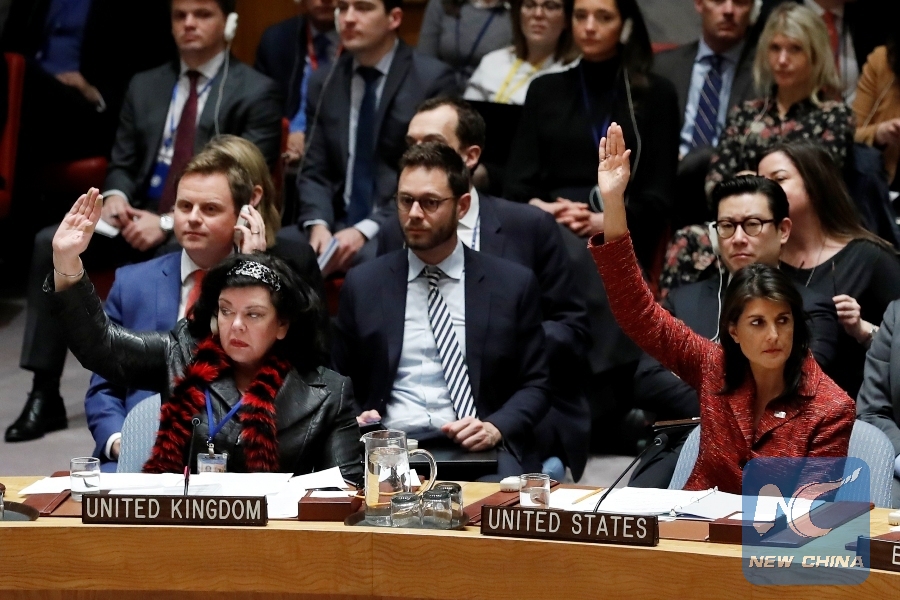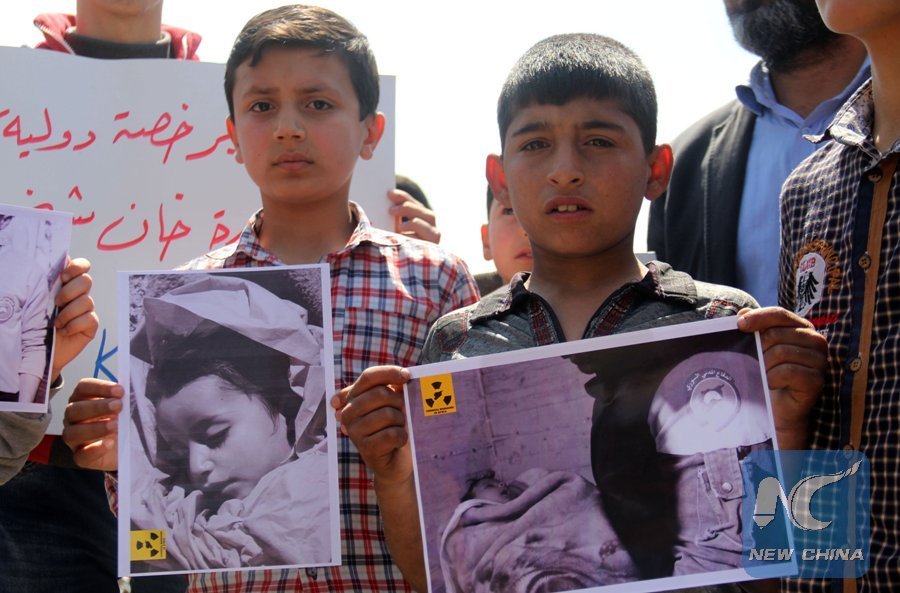
Russian Ambassador to the United Nations Vassily Nebenzia (C, front) is seen prior to a Security Council meeting on the chemical weapons use in Syria, at the UN headquarters in New York, on April 10, 2018. (Xinhua/Li Muzi)
UNITED NATIONS, April 10 (Xinhua) -- A Russian-drafted resolution on an investigative mechanism for chemical weapons use in Syria failed to be adopted by the Security Council on Tuesday.
Of the 15 members of the Security Council, only six voted in favor of the Russian text, while seven voted against it, and two others abstained.
Adoption needs nine positive votes, including "yes" votes from all the five permanent members of the council -- Britain, China, France, Russia and the United States.

U.S. Ambassador to the United Nations Nikki Haley (R, Front) and British Ambassador to the UN Karen Pierce (L, Front) vote in favor of a U.S.-drafted resolution on probe of chemical weapons use in Syria at the UN headquarters in New York, on April 10, 2018. (Xinhua/Li Muzi)
Before the vote on the Russian draft, Russia vetoed a U.S.-drafted text for the same purpose.
The main difference between the two competing texts is that the Russian draft gives the Security Council the power to attribute accountability for chemical weapons use in Syria while the U.S. draft gives investigators this power, as the case with the now-defunct Joint Investigative Mechanism between the Organization for the Prohibition of Chemical Weapons (OPCW) and the United Nations.
The Joint Investigative Mechanism had found that both the Syrian government and the Islamic State terrorist group used chemical weapons in Syria.

In this file photo taken on April 7, 2017, Syrian residents of Khan Sheikhun hold placards and pictures during a protest condemning a suspected chemical weapons attack on their town that killed at least 86 people, among them 30 children. (Xinhua/AFP)
The mechanism ceased in November 2017 after Russia blocked the renewal of its mandate.
Before the vote on the U.S. text, U.S. ambassador to the United Nations Nikki Haley said the Russian text wants to choose the investigators and assess the outcome while the U.S. text allows for truly independent investigation.
Russian ambassador to the United Nations Vassily Nebenzia said the U.S. draft prejudges the outcome of an investigation.

